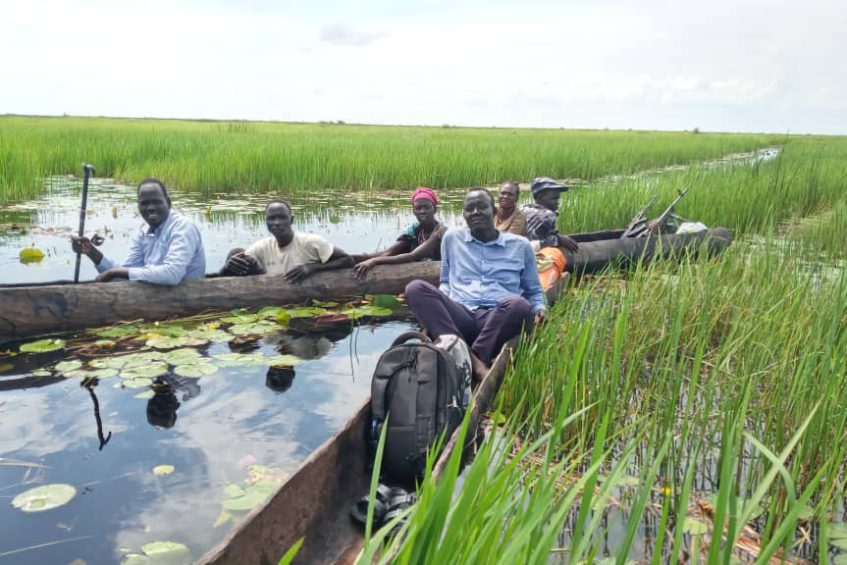You are here: Home | Economy | Humanitarian | News | 2021 floods: S Sudan lost 37,000 tons of cereal production – FAO report

People use canoes to cross from one village to another as low-lying areas have been submerged in the Upper Nile region | Credit | Courtesy
A report by the UN Food and Agriculture Organization estimates that South Sudan has lost at least 37,000 tons of cereal production to flash floods in 2021.
The report, which provides a state-by-state summary of the effects of flooding in 2021 on crops and livestock, shows Warrap, Northern Bahr el Ghazal and Jonglei states were the most affected in terms of loss of production.
Warrap state saw an estimated loss of more than 21,126 tons of cereal production, a significant portion of the total nation-wide cereal production loss which is estimated at 37,624 tons.
Livestock killed by the flooding include cattle, sheep, goats, dogs, donkeys and poultry.
In Upper Nile state, it is estimated that more than 143-thousand animals died due to the floods.
In Jonglei, the number is more than 251-thousand, and in Unity state, nearly 355-thousand animals were lost.
FAO estimates the total number of livestock loss across the country at 795, 558 animals.
“This disastrous level of crops and livestock loss represents a significant threat to the livelihood and the food security for hundreds of thousands of South Sudanese,” a statement by the FAO Representative in South Sudan partly read.
According to a report by UNOCHA, an estimated million people have so far been affected by the flash floods in 27 counties.
Jonglei and Unity states are the most affected – accounting for 58% of people affected.
Upper Nile, Western, and Northern Bahr el Ghazal come second as states badly affected by floodwater.
However, FAO representative in South Sudan, Meshack Malo stated that despite the decline in the production and impacts of the flooding, FAO has provided additional support including seeds, tools, and fishing kits to the people affected by the devastating flooding in the country.
He says FAO also initiated an emergency vaccination campaign to combat livestock diseases which spread more easily in flood-affected areas.
These, he explains, were achieved through the support of its partners including USAID, Norway, UK, Sweden, African Development Bank and UNOCHA.
But further investment and efforts he says will be necessary in the new year to help farmers and livestock keepers recover from the devastation caused by floods in 2021.
The report is the result of an assessment conducted by FAO, the Ministry of Agriculture and Food Security and state ministries of agriculture.
The report concludes FAO will be working with ministries at both the national and state level to address the effects of the floods in 2022.
Support Eye Radio, the first independent radio broadcaster of news, information & entertainment in South Sudan.
Make a monthly or a one off contribution.
Copyright 2024. All rights reserved. Eye Radio is a product of Eye Media Limited.